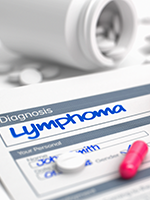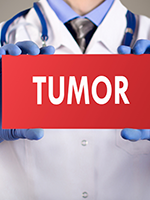San Diego, CA—The economic burden faced by patients with cancer who have low income may be more pervasive than previously thought. According to data presented at the 2019 ASCO Quality Care Symposium, even patients enrolled in clinical trials are at high risk for financial toxicity.
“The economic burden is high for patients who are enrolled in early-phase clinical trials,” said Ryan W. Huey, MD, Assistant Professor, Department of Gastrointestinal Medical Oncology, M.D. Anderson Cancer Center, Houston, TX. “Our survey found that out-of-pocket costs can be substantial, and 70% of the time they are nonmedical in nature. These costs are also frequently unexpected for patients enrolled in clinical trials.”
Although clinical trials provide the highest level of evidence for demonstrating the efficacy of new treatments, only a minority of adult patients with cancer enroll in these trials, and patients with lower socioeconomic status are underrepresented. Furthermore, said Dr Huey, the financial burden associated with clinical trials is not well-understood, especially for patients with lower income.
“Although study sponsors are responsible for helping pay for physician visits, hospitalizations, drugs, and tests, the patient bears a lot of this cost, as well,” said Dr Huey. “Whether it’s copay, coinsurance, or deductibles, there are cost-sharing mechanisms in place. The patient is also responsible for a lot of nonmedical costs, including transportation, food, and lodging, in addition to their time.”
Dr Huey and colleagues surveyed 147 patients with advanced cancer about the economic burden and financial toxicity among those who participate in phase 1 clinical trials for at least 1 month. The validated Comprehensive Score for Financial Toxicity tool was used to assess financial toxicity. The patients surveyed also reported monthly out-of-pocket medical and nonmedical expenses.
Survey Results
Of the 147 consecutive patients, 105 (median age, 60 years; 62% female) agreed to participate in the survey. Of those, 49% had an annual income of <$60,000, and 49% of them lived >300 miles from the study clinic, with 34% of the patients requiring air travel to receive treatment. Overall, 41% of the patients had Medicare coverage and 51% had employer-based insurance.
Analysis showed that patients had an average of $2100 monthly out-of-pocket costs to pay for their cancer treatment in the clinical trial. Most (70%) of these costs were nonmedical, said Dr Huey. Approximately $1500 (median, $985) per month was spent on nonmedical expenses and $640 (median, $475) per month was for medical costs.
Further analysis showed that partial reimbursement for clinical trial costs was not associated with any difference in patients’ financial burden. Similarly, travel to the clinic, whether long or short, did not significantly influence financial burden, although it was associated with increased out-of-pocket costs.
Patients with a household income of <$60,000, however, did have increased financial toxicity. In all, 77% of patients in the lowest quartile of the financial toxicity had incomes under $60,000 versus only 27% in the highest quartile. In addition, significantly more patients with financial toxicity were unemployed or working from home compared with those without financial toxicity (54% vs 12%, respectively).
Higher household income was associated with increased spending on medical and nonmedical costs. However, these costs did not lead to increased financial toxicity.
Patients’ Perspective
When asked whether the costs associated with clinical trial participation were in line with their expectations, a large majority of patients indicated that they had higher-than-expected medical expenses, and 63% said that nonmedical expenses were higher than expected.
The results of the survey showed that 76% of patients had moderate financial burden or worse. The time commitment for patients was also much greater than they had anticipated before enrollment.
“In the future, we will try to better understand if this economic burden is unique to the phase-1 population, or whether financial hardship is a problem for patients who are in other phases of clinical trials,” Dr Huey said. “Although we did not measure financial toxicity in patients who declined participation in the clinical trial due to costs, we would like to assess that in future research.”


